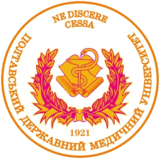Please use this identifier to cite or link to this item:
http://repository.pdmu.edu.ua/handle/123456789/17796| Title: | Being a left-hander in the world of the right-handers |
| Authors: | Tkachenko, E. V. Aqib, M. Muhammad, H. Ткаченко, Олена Вікторівна |
| Issue Date: | 2022 |
| Publisher: | Boston, USA |
| Citation: | Tkachenko E. V. Being a left-hander in the world of the right-handers / E. V. Tkachenko, M. Aqib, H. Muhammad // The VI International Science Conference “Tendencies of Development Science and Practice”, (Boston, USA, February 14–16, 2022). – Boston, 2022. – P. 39–43. |
| Abstract: | The article deals to the questions concerning to essentiality to study sinistrality in Science various branches from theoretical and applied points of view, emphasizes that increased attention to its study is still present in many countries. The authors demonstrate the data of scientists from different countries, pay attention to sinistrality distribution some peculiarities, frequency-dependent selection model, economic consequences of being left-handed people, relations between handedness and capital accumulation, sinistrality and forced dextrality origin, write about the link between higher order cognitive functions and handedness, differences in divergent thinking as a function of handedness and sex, pay significant attention to sinistrality study applied significance. The authors give the results of their own researches concerning to physiological systems functioning dependence on sinistrality and its type, in Psychology, Pedagogy, Dentistry while emphasizing about interhemispherical asymmetry individual profile indices applied significance as well as necessity to study sinistrality in a complex with other typological aspects. |
| Keywords: | physiology psychology pedagogy medical biology neurology pediatry economy infectious diseases parasitology sinistrality dextrality left- handedness lefties right-handedness forced dextrality interhemispherical asymmetry individual profile indices sinistrality frequency-dependent selection model thinking typological aspects men women children gender typological aspect age typological aspect ethnic typological aspect twins “left” diseases helminthoses prothozoonozes dyslexias apraxies chromosomal aberrations trisomy 21 autism prozopagnosies faces recognition, lipoprotein A diabetes mellitus mirror writing electroencephalography patterns epilepsy |
| URI: | http://repository.pdmu.edu.ua/handle/123456789/17796 |
| Appears in Collections: | Наукові праці. Кафедра фізіології |
Items in DSpace are protected by copyright, with all rights reserved, unless otherwise indicated.



